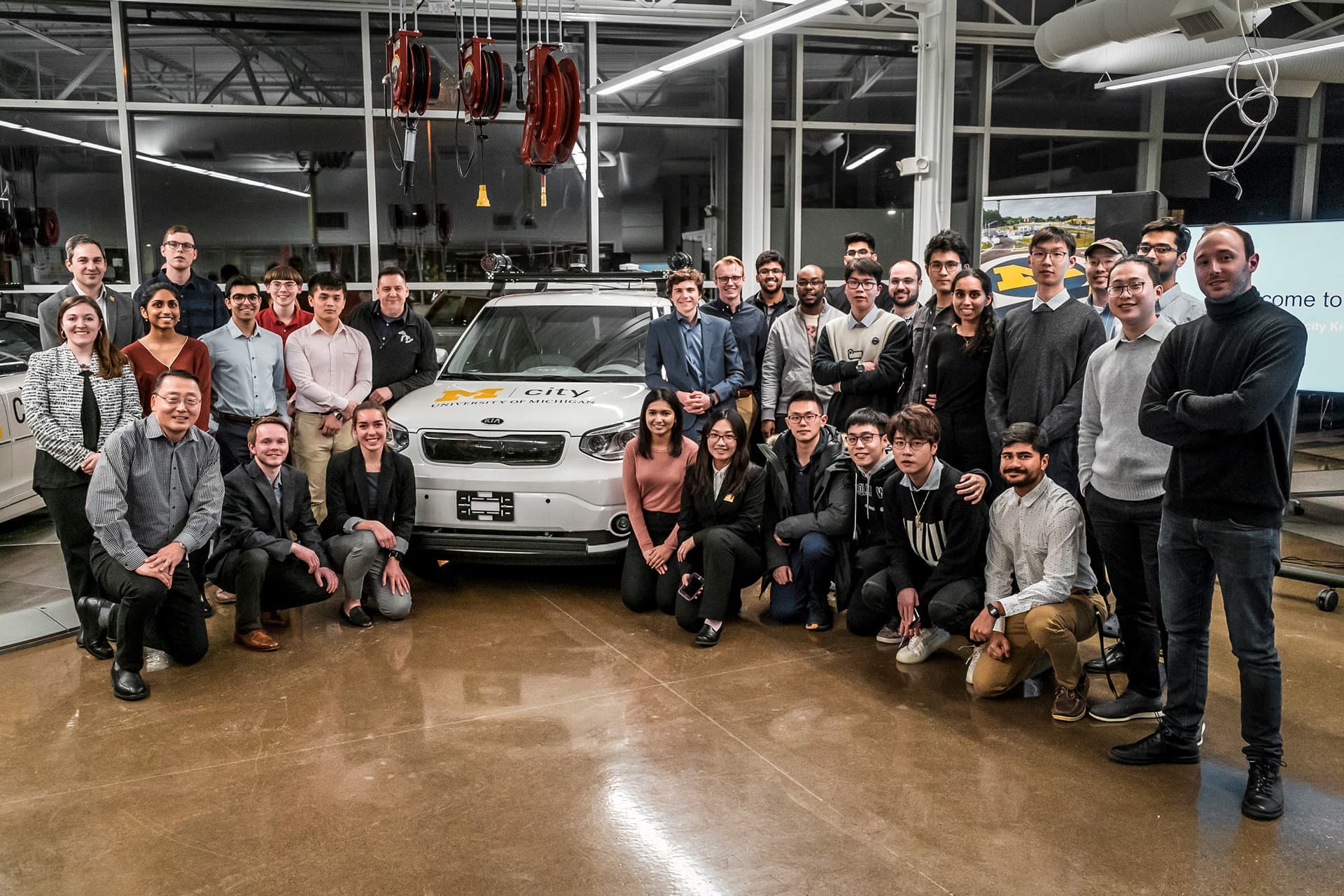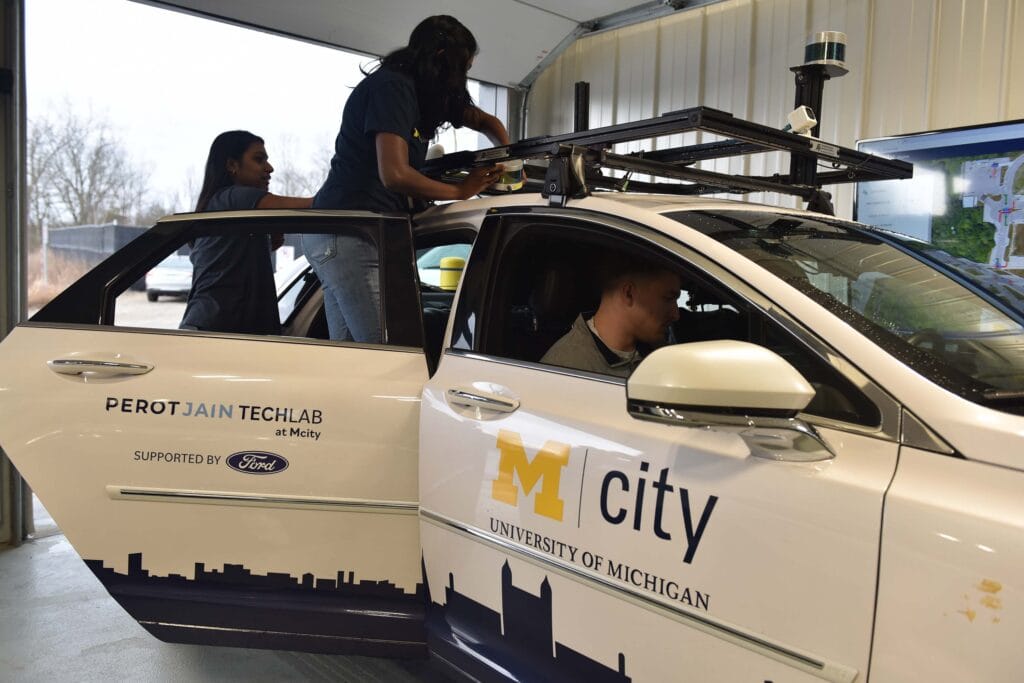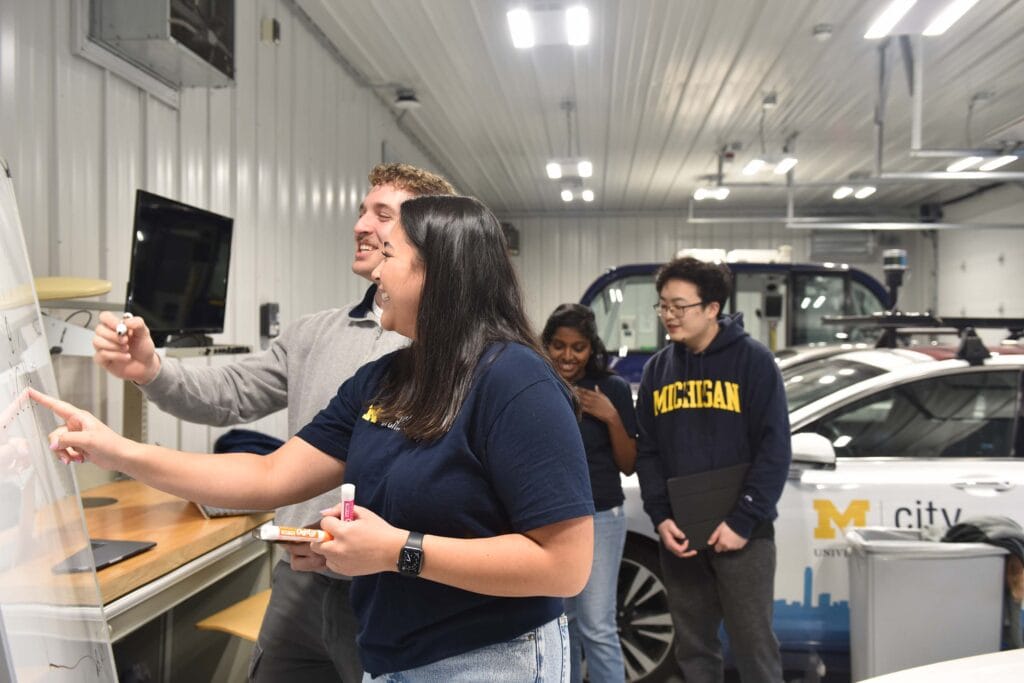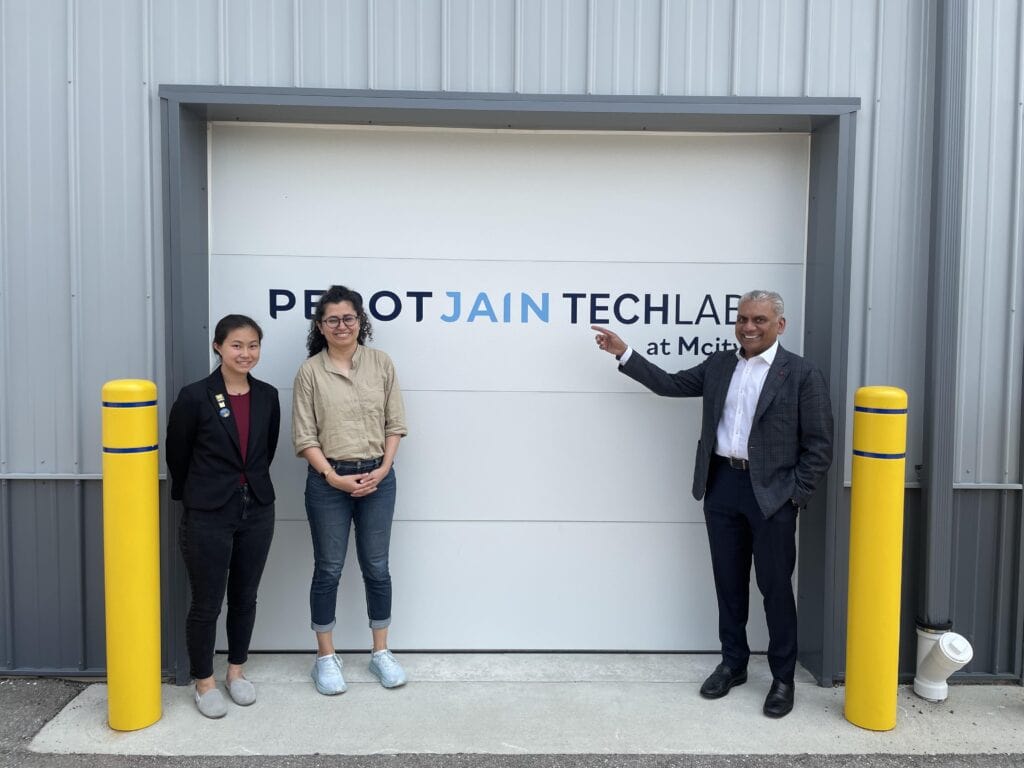
Perot Jain TechLab program enables entrepreneurial experience for technical students
Newly re-named and boosted with funding from Perot Jain, Ford and more, Perot Jain TechLab connects students with startups to explore new technology applications.

Newly re-named and boosted with funding from Perot Jain, Ford and more, Perot Jain TechLab connects students with startups to explore new technology applications.
Enrollment opens today for the Perot Jain TechLab program at U-M, which is supported with $2 million total over the next two years from the venture capital firm Perot Jain, Ford Motor Company and the Michigan Economic Development Corporation.
The course, which has been running as TechLab at Mcity since 2016, pairs undergraduate and Master’s students studying engineering, computer science and data analytics with emerging transportation startups. Perot Jain, Ford and the State of Michigan share an interest in growing the talent pipeline for developing these technologies and bringing them to market.

“We’re incredibly proud of the partnerships with Perot Jain, Ford and the Office of Future Mobility to enhance and expand our programming,” said Nick Moroz, director of entrepreneurial practice at the Center for Entrepreneurship. “This will enable a richer experience for more students, providing them with cutting-edge resources for their projects and more career opportunities post-graduation.”
At its inception, Perot Jain TechLab connected students with mobility startups through a partnership with U-M’s Mcity, which runs the world’s first purpose-built testing environment for connected and automated vehicles. The students work with future mobility startups that are past the earliest stages, with a set of investors who hold equity in the company. Their projects explore how existing technologies might be applied to solve different problems in advanced mobility.
“The classes taught me the intricacies of starting a business and gave a fresh perspective on the autonomous vehicle industry,” said Niyanta Mehra (MSE Robotics ’23), who worked with ADASTEC, which develops software for automated buses.

The program has been equally satisfying for industry partners.
“Our partnership with TechLab at Mcity was one of CARMERA’s most enduring and productive research collaborations. Having worked with two cohorts of U-M students over four semesters, I can point to the direct, tangible impact the students had on some of the most important components of the CARMERA tech stack,” said Ro Gupta, co-founder and CEO of CARMERA, which developed software so that autonomous vehicles could map their environments. Woven by Toyota acquired it in 2021.
“The support we and the students received from TechLab and Mcity was critical in making our work together successful, and the advantages of working onsite in Michigan—both for proximity to important industry constituents and for key environmental/weather exposure—were indispensable,” he added.
The new sponsors will not only financially support the program, but will also help identify startups and technologies that are right for Perot Jain Techlab. For instance, the expanded program will include emerging companies focused on vehicle electrification and carbon sequestration in addition to connected and automated vehicles. The sponsors will also provide experts as guest speakers to help students understand industry’s cutting edge and the opportunities and challenges there.

“Investing in the future of entrepreneurship is investing in the future of innovation, and we are proud to support the University of Michigan’s Center for Entrepreneurship in their efforts to foster the next generation of industry-transforming companies,” said Anurag Jain, the founding partner of Perot Jain and alumnus of the University of Michigan Ross Business School (MBA ’95).
“Our commitment to partnering with entrepreneurs is rooted in our belief that disruptive ideas can change the world, and the Perot Jain TechLab series will provide a platform for the next generation of game-changers to cultivate and realize their vision,” he added.
Beyond future mobility, the Perot Jain TechLab program is seeking more partners to help build emerging technologies in healthcare, space and cybersecurity. The program aims to add these offerings over the next three years.